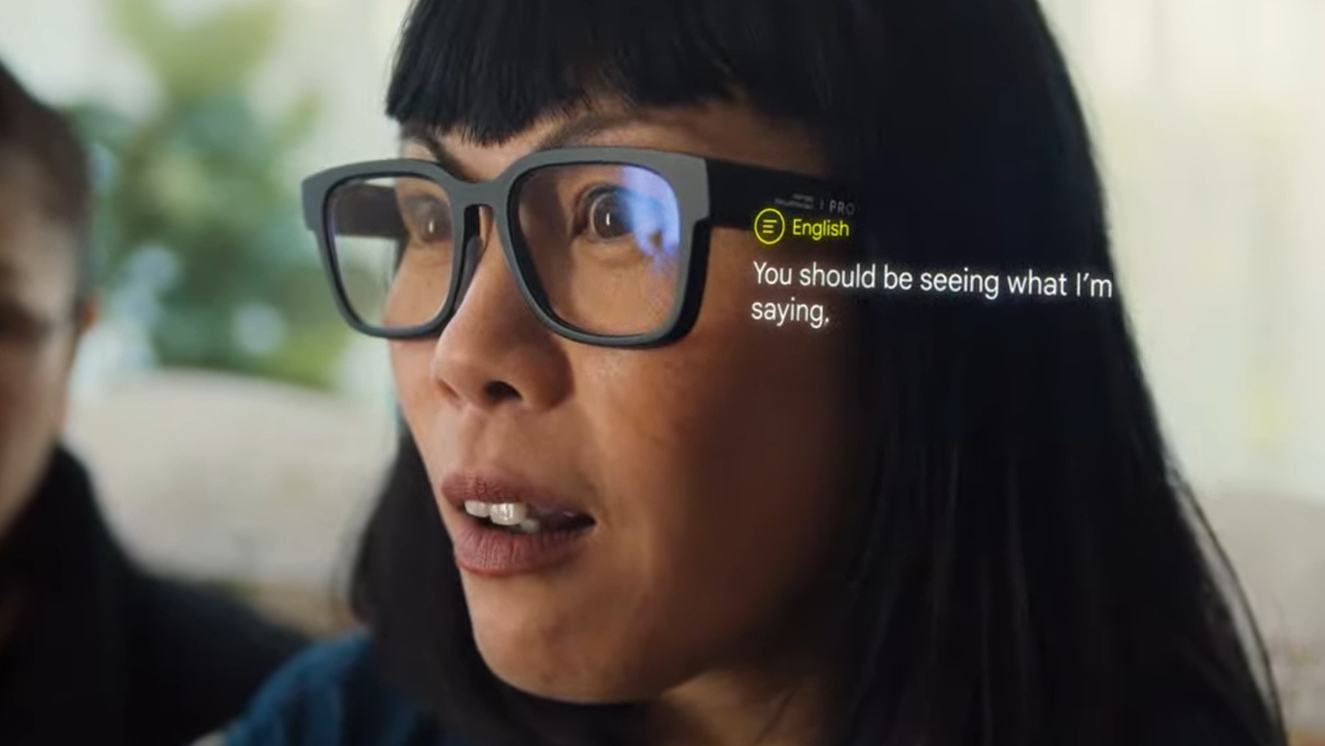Google has apparently killed its AR glasses – and that’s good news for Apple
The Google Translate Glasses are no more, it seems

Google isn't averse to killing off its products, with the now-shuttered Stadia and the slow demise of Fitbit being the latest candidates for cremation – and now we can sadly add its AR translation glasses to the list, according to a new report.
According to Insider, Google has shelved its plans – codenamed Project Iris – to make augmented-reality glasses. If that's the case, we can wave goodbye to the live-translation spectacles that we first saw at Google IO 2022.
Google has apparently been working on its AR glasses project for several years, though the concept seemingly differs from the separate Extended Reality (or XR) initiative that it's started with Samsung.
While the latter will likely be more of an Apple Vision Pro rival, with a ski-goggle design, this newly-canned AR project was apparently "a series of devices more closely resembling eyeglasses". Like those exciting, prototype Google Translate glasses that we saw in the video below last year.
It now seems that Google has backtracked on making AR hardware itself, instead focus on making software and operating systems. The Insider source claims that Google is making an Android XR platform for Samsung's forthcoming headset, which leaks suggest will be a standalone device that works independently of a computer or phone.
According to an employee that Insider interviewed, Google now instead wants to be an "Android for AR" rather than a hardware player like it is in phones with the Pixel series. The search giant said at Google IO 2023 that it would "share more later this year" about its AR partnership with Samsung. But it looks like we'll sadly hear no more about its plans to make glasses specifically for Translate or Maps.
Analysis: The AR path is clear for Apple and Meta

If Google has indeed canned its plans to make a series of AR glasses, that would be a real shame – we argued that Google IO 2023 felt like a now-or-never moment for its AR translation glasses to step towards reality, and it seems the search giant is erring towards 'never'.
Sign up for breaking news, reviews, opinion, top tech deals, and more.
What we particularly liked about the live-translation glasses concept was their unobtrusive design and singular focus – neither of which apply to Apple's larger Vision Pro, which is apparently uncomfortable to use for long periods.
It's possible that another company could come in and fill that gap. We had the pleasure of trying TCL's RayNeo X2 AR glasses at CES 2023, while Oppo's Air Glass 2 have an impressive design (if one that probably won't be available to buy in Western markets).
But otherwise the path is now clear for Apple, Meta and potentially Samsung to own the AR space. The Vision Pro isn't technically 'augmented reality', but Apple is rumored to be already working on two successors that might ultimately lead to some Apple Glasses.
But it's Meta that could ultimately fill the hole left by Google for some babel fish-style translation glasses. In February 2022, it announced its ambitious plans to make a 'Universal Speech Translator'. And at the time Mark Zuckerberg said that "with improved efficiency and a simpler architecture, direct speech-to-speech could unlock near human-quality real-time translation for future devices, like AR glasses".
With more news on Samsung's XR headset expected later this year, there's certainly no shortage of hardware players who are trying to put transparent computers on our faces – but given the suitably of services like Google Translate and Google Maps for some AR glasses, it's a shame that the search giant is no longer in that mix.

Mark is TechRadar's Senior news editor. Having worked in tech journalism for a ludicrous 17 years, Mark is now attempting to break the world record for the number of camera bags hoarded by one person. He was previously Cameras Editor at both TechRadar and Trusted Reviews, Acting editor on Stuff.tv, as well as Features editor and Reviews editor on Stuff magazine. As a freelancer, he's contributed to titles including The Sunday Times, FourFourTwo and Arena. And in a former life, he also won The Daily Telegraph's Young Sportswriter of the Year. But that was before he discovered the strange joys of getting up at 4am for a photo shoot in London's Square Mile.
